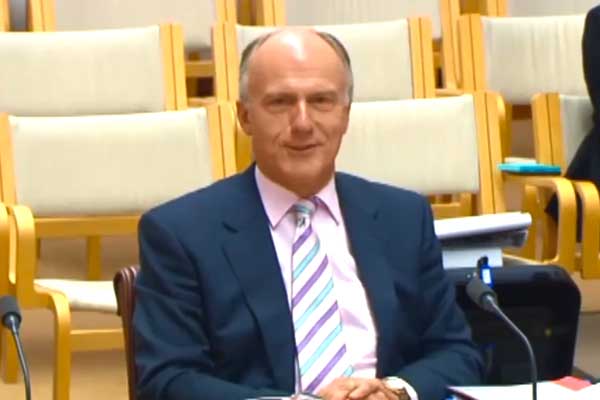Thousands of public sector workers will begin a week of half-day strikes across the country today as the federal government’s failure to secure new enterprise agreements in the sector drags on.
The industrial action is “the largest taken by Commonwealth public servants in a generation” according to the Community and Public Sector Union’s National Secretary Nadine Flood.
Workers are angry that nearly a year after the enterprise agreements governing the sector lapsed the Employment Minister has failed to nail down any major replacements in the larger government agencies.
“Public sector workers don’t take industrial action lightly, but right now they have no other choice,” Flood said.
“The Abbott Government has slashed 17,300 public sector jobs since taking office and now it’s going after the conditions, rights and take-home wages of 160,000 Australians who work in the public sector.”
The union said that workers stand to lose more than they gain under enterprise agreements being proposed by the government. Customs officers, it said, could lose up to $8,000 a year because of cuts to allowances, “while part-time and casuals in Centrelink and Medicare would get less money for doing the same work”.
Centrelink workers have been at the forefront of the ‘Smaller Government Reform Agenda’ with a recent report from the Australian National Auditor highlighting the pressure staff and services are under.
Around half of the 57 million calls to Centrelink’s phone service are being left unanswered, the report revealed, while average wait times had blown out to nearly 17 minutes.
The Department of Human Services (DHS) estimates the problem would take around 1,000 staff to fix but DHS, which also takes in the smaller Medicare and Child Support agencies, has lost nearly 5,000 staff over the last five years.
The government’s agenda has affected a wide range of workers at agencies including Customs and Immigration, Education, Environment, CSIRO, the Australian Tax Office and the Australian Bureau of Statistics.
Workers from all of these agencies and more will take part in this week’s strikes, which follow earlier industrial action in May that saw around 30,000 union members stage rolling one-hour stoppages across 1,000 worksites
“The Government will try and say this dispute is all about getting a bigger pay rise, but the reality is all workers face losing of their workplace rights and some are actually facing a pay cut,” Flood said.
It’s a position that Labor has backed, with the Shadow Employment Minister Brendan O’Connor previously attacking the government for “reducing collective bargaining to an adversarial zero sum game epitomised by confrontation, cost-cutting and extreme ideology”.
“Under the Abbott Government's policy, every government department and agency has been left with nowhere to turn but to cut costs through cutting real wages and working conditions,” O’Connor said.
“There is no doubt that this will impact frontline services.”
The government maintains that its cuts to public sector jobs will not damage frontline services and a spokesperson for the Employment Minister has previously accused the union of taking an “intransigent stance [that]will only have the effect of costing its members jobs and further delaying a sustainable pay rise”.
Ironically though, the Employment Minister’s own staff are among those who have already taken industrial action and the union argues the government’s bargaining policy, which sets out the general parameters for individual agencies negotiating new enterprise agreements, is too harsh.

A spokesperson for the Employment Minister told New Matilda that “the minister is not the bargaining agent” and that “bargaining is conducted directly with employees by the individual agencies and departments”.
But O’Connor said “there is nothing in the Abbott government’s public sector workplace bargaining policy that even remotely approaches the sophistication needed to genuinely boost the productive capacity”.
The Greens have also characterised the government’s position as an attack on public sector workers, which Industrial Relations spokesperson Janet Rice accused Tony Abbott of using as “his political punching bag”.
“They are people with real lives and real families to support,” Rice said. “Not content with slashing thousands of public sector jobs, Tony Abbott is now going after the remaining workers’ rights, conditions and wages.”
Negotiations have been at an effective impasse for months, and the CPSU said its calls to meet with the government to break the deadlock have fallen on deaf ears.
“After more than a year, the Abbott Government is still refusing to sit down with the union, like most other sensible employers do, and negotiate a fair agreement,” Flood said.
“Thousands of public sector workers face a cut in their current take home pay, with reduced allowances, cuts to rights and penalty rates plus increased hours, all of which will cost them far more than a 1.5 per cent pay offer would deliver.
“Australia’s public sector workers are not asking for special treatment, they just want the opportunity to negotiate fair agreements that won’t leave them worse off.”
Donate To New Matilda
New Matilda is a small, independent media outlet. We survive through reader contributions, and never losing a lawsuit. If you got something from this article, giving something back helps us to continue speaking truth to power. Every little bit counts.



